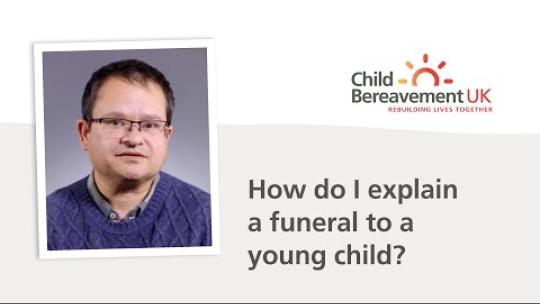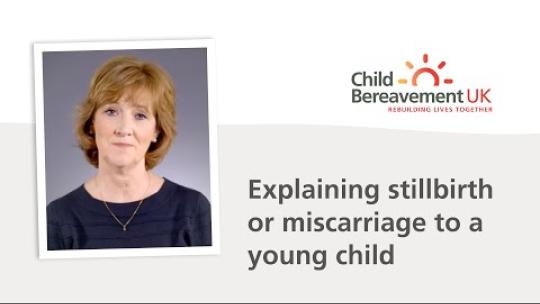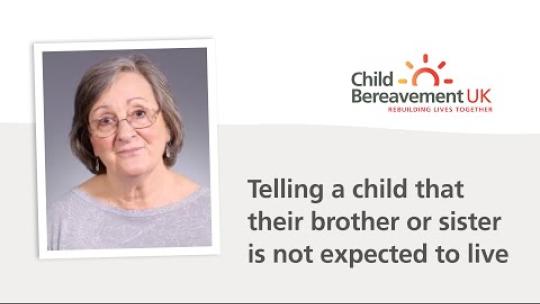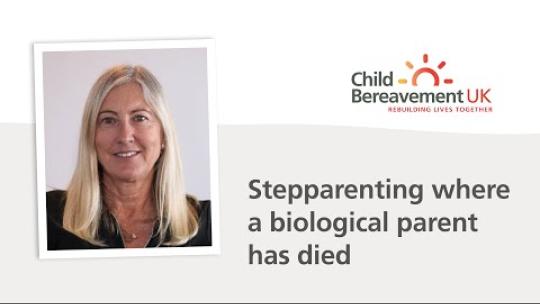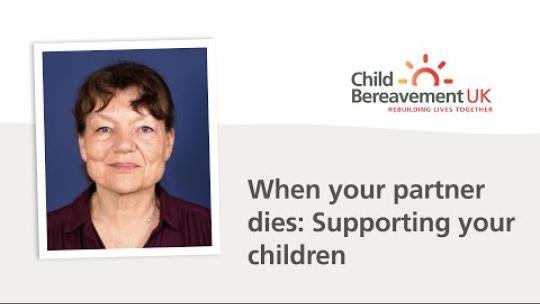Supporting grieving infants and young children
Helping families support their infant or young child following a death can be very difficult. Families may hope their young children will be 'too young to remember', and although they are incredibly resilient, infants and young children still need support in their grief. In order to make some sense of what has happened, infants and young children need information and explanations that are developmentally appropriate. Here you will find resources that will guide your care of grieving families who have infants or young children.
Infants’ and toddlers’ understanding of death
Infants and young children have no understanding of the concept of death yet. However, long before they are able to talk, babies can sense and react to changes in their environment brought about by the absence of a significant person who responded to their needs for care and nourishment on a daily basis. They will also be impacted by the emotional withdrawal that may happen if a parent or primary caregiver bereaved.
Up to the age of 6 months, infants may experience a sense of abandonment and insecurity when a caregiver dies, which may result in increased crying and disruption of sleep and feeding. From around the age of 8 months or so, infants and toddlers begin to develop a ‘mental image’ of the person who has died and have a sense of ‘missing them’. Infants and toddlers at this age may cry more or become more withdrawn; they may lose interest in toys or food and, as they develop motor skills and language, may call out for or search for the person who has died.
As a healthcare professional, you can help by encouraging the surviving caregiver(s) to provide lots of reassurance to their infants/toddlers, and by keeping to normal routines as much as possible.
Preschoolers’ understanding of death
Young children are often interested in the idea of death, and often this shows up as asking about death in relation to dead flowers or animals. They can begin to use the word ‘dead’ and develop an awareness that this is different to being alive. Children this age do not understand abstract concepts like ‘forever’ and cannot grasp that death is permanent. Their limited understanding may lead to an apparent lack of reaction when told about a death, and they may ask many questions about where the person who has died is and when that person will come back. Children at this age expect the person to return.
Preschool children may have disrupted sleep, changes in appetite, less interest in play and may become more anxious about separation even when being left with familiar adults. There may be regression in skills such as language or toilet training.
Young children tend to interpret what they are told in a very literal and concrete way; therefore, it is important to encourage caregivers to avoid using words like ‘lost’, ‘gone away’ or ‘gone to sleep’ to describe death, given that they that may cause misunderstandings and confusion. As a healthcare professional, encourage caregivers to provide honest answers to preschoolers' questions but remind them that they do not have to their young children everything in detail or all at once. Information can be built on over time.
Communicating with young children about death
When is it best to tell them that someone has died, and where should it be done?
- It may go against adults’ protective instincts, but children need to hear the news as soon as possible. The longer you leave it, the greater the likelihood that they will overhear a conversation or find out in some other inappropriate way. Children are very sensitive to other people’s emotions and will already know that something serious has happened, but may be unsure as to exactly what.
- The news is best heard from someone in the child’s family, but this can be a very hard thing to do. If you feel unable to do this, try to stay in close proximity while someone else familiar to the child explains what has happened.
- If you are breaking the news yourself, have someone else around to support you.
- If possible, find somewhere where you will not be disturbed.
- Try to be physically close to the child or have some sort of physical contact such as holding a hand. Sitting next to each other on a couch is ideal. For a child who finds physical contact uncomfortable, just sit nearby.
How to tell a young child that someone has died
- Alert the child to the fact that you have something sad to say: ‘I have some very sad news to tell you...’
- Often initially all you need to say is that the person has died; more questions will follow when the child is ready for further explanation and information.
- If a person has been ill, it can be helpful to build on what the child already knows: ‘You know last time we saw granny and she was very sick...’
- Reassure the child that it is OK to ask questions about anything at all and that you will do your best to answer them honestly.
Explaining what ‘dead’ means to young children
The following are suggestions for words and phrases you can provide caregivers who need to explain the concept of death to a young child. You can remind caregivers that exactly what they choose to say will depend on individual circumstances and their own beliefs. A good approach is honesty combined with lots of reassurance. Encourage caregivers to concentrate on what feels right for them and the children they are caring for.
As a healthcare professional, you may encourage a caregiver to begin with something like: ‘When somebody dies their body stops working. A dead body does not breathe because their lungs are no longer working and the heart has stopped. A dead body cannot move, it will be very quiet and still. A dead body cannot feel anything so there will be no pain.’
On hearing the news, a child’s reactions may vary from extreme distress to looking blank as if nothing has happened, or even giggling nervously – all are normal. Because a young child can find it hard to grasp the difference between being dead and being alive, they may need to be reassured with words along the lines of the following: ‘Because their body has stopped working, dead people do not need anything to eat or to drink and they cannot feel the cold. Dead people stay dead for ever; much as we might like them to, they cannot come back to life.’
Remind caregivers that if you are unsure about any of the details, it is appropriate to be honest about what they do not know and they can always tell their young children that when they do find out, they will tell the child. Caregivers are likely to have to repeat this information and answer questions in the days and weeks following a death. Being asked the same questions over and over again can be extremely hard but this is the way that young children try to make sense of what has happened.
